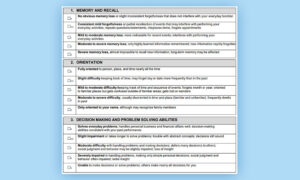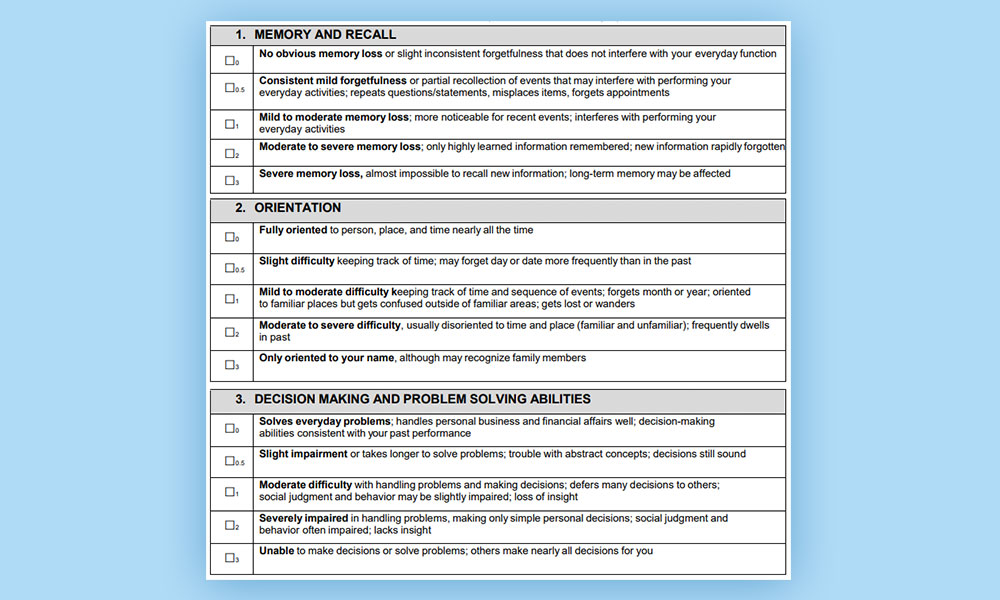The Quick Dementia Rating System (QDRS) – Patient and Informant Versions

Description
The detection of mild cognitive impairment (MCI), Alzheimer’s disease (AD) and related dementias in community samples of older adults may be limited in part due to the lack of brief tests that capture and characterize the earliest signs of impairment and monitor response to therapies and interventions. The average busy clinician does not have 90-120 minutes to examine each patient, yet this is the time required to generally collect the detailed information needed to make a diagnosis of Alzheimer’s disease. This may affect eligibility determination for care and services, impede case ascertainment in epidemiologic studies, and inhibit the ability to identify eligible individuals for clinical trial recruitment. We developed the Quick Dementia Rating System (QDRS)—a rapid dementia staging tool to meet these needs. The QDRS provides a brief but valid and reliable assessment of whether a problem is present, and if present how severe it is. The QDRS was tested and validated in 267 patient-caregiver dyads compared with Clinical Dementia Ratings (CDR), neuropsychological testing, and gold standard measures of function, mood, and behavior. Like all brief tests, a positive result should be followed up with a more comprehensive evaluation or a referral to a specialist. However in places where specialist are limited, use of the QDRS could help to more appropriately triage patients for appropriate use of services. It could also be used to follow patients in a succinct way to see how they are responding to therapy or if they have progressed and need more services. In a broader sense, a brief test such as the QDRS can be used to enrol people in research projects, and help determining prevalence of disease in communities in a very quick fashion

